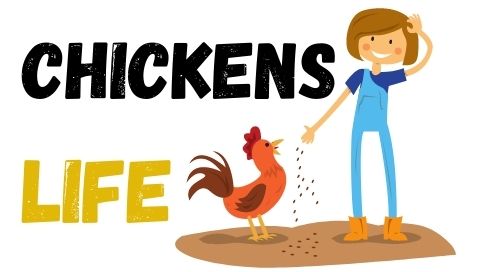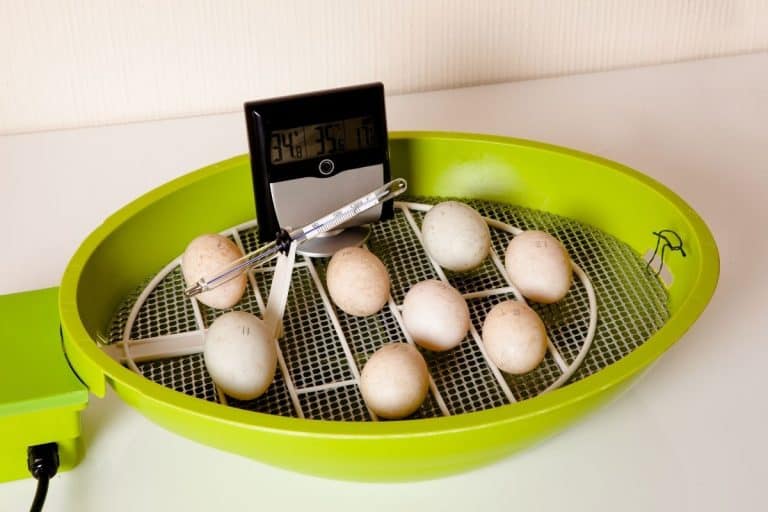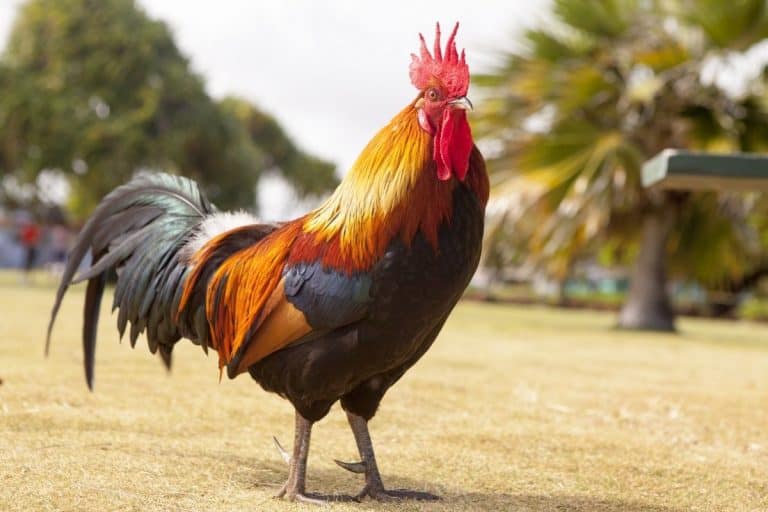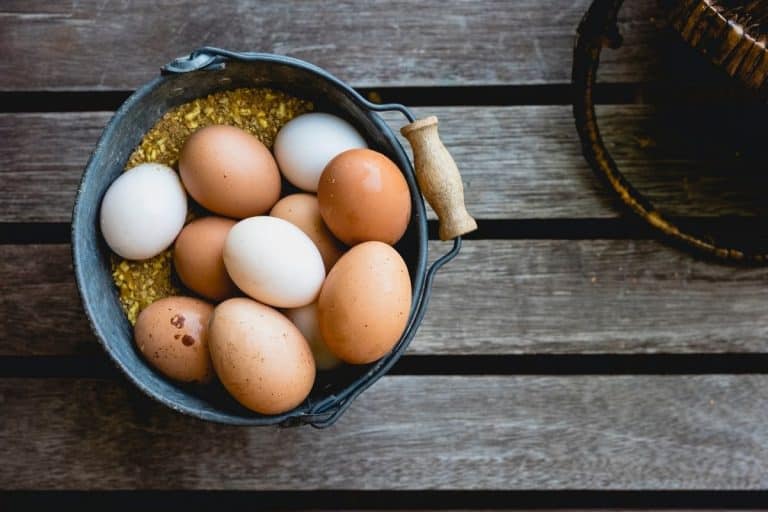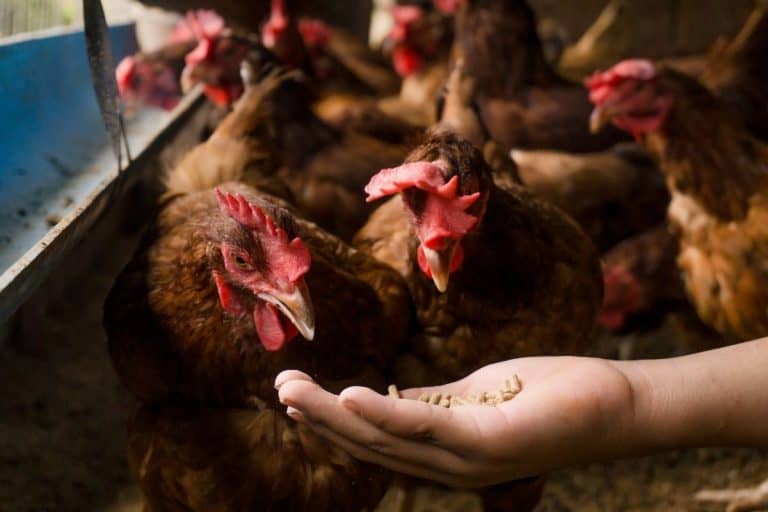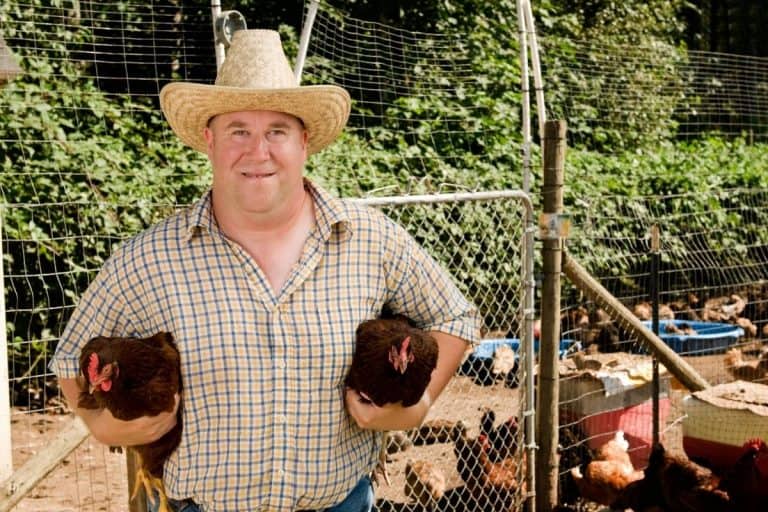Can I Eat My Eggs If I Have A Rooster? (What’s different?)
For those who have kept their own chickens and are regularly collecting their eggs to eat them, something you probably know is that these eggs are unfertilized and are never going to hatch into chicks unless there was a rooster present in your flock. But what if you actually have a rooster around to mate with your hens and fertilize their eggs? Can you still eat your eggs even if you have a rooster?
It is perfectly fine to eat your eggs if you have a rooster, regardless of whether the eggs are fertilized or not. That’s because fertilized eggs need to be kept by the hen for a few days for an embryo to form. So, if you were to collect your eggs daily, the fertilized eggs will not form an embryo.
Many people who keep backyard chickens for their eggs tend to be a bit reluctant about adding a rooster to the flock because there is a possibility that the eggs will get fertilized. However, you don’t have to worry because even fertilized eggs are still safe to eat, so long as you actually collect them as early as possible and keep them stored under temperatures that will prevent an embryo from forming.
But before you dive into this topic, did you know I've got a page packed with my go-to chicken stuff? From the best feed to handy tools, it's all there. Don't you want the best for your flock? Check it out right here.
Can I eat my eggs if I have a rooster?
When it comes to keeping backyard chickens in your own home or on a farm, there is always something great about being able to collect your chicken eggs and have a perennial supply of eggs so that you don’t have to go to the grocery store to buy eggs whenever you run out of them.
And this is usually the case for those who only keep hens, as hens will always lay unfertilized eggs that will never turn into chicks as long as there is no rooster around to mate with the hens and fertilize the eggs.

But what if you actually keep a rooster around your hens? Let’s say that you keep a rooster to protect the hens and their eggs from predators and to have a good flock of chickens that will continue to grow. You would know that the rooster will actually mate with the hens from time to time and will fertilize the eggs of some of your hens. In such a case, is it still possible for you to eat the eggs even if you have a rooster around?
The good news for you is that, yes, it still is possible for you to eat your eggs even if you have a rooster that is there to mate with the hens in your backyard or farm. And some of you might think that it sounds weird when I say that it is even alright for you to eat an egg that has already been fertilized by your rooster.
It takes time for eggs to form an embryo
The reason why you can still eat chicken eggs that were laid when a rooster was around to mate with your hens is that it will take a few more days for the embryo in the eggs to form. And this will only happen if you have a broody hen that will actually sit on her eggs and keep them warm enough to incubate them.
As such, if you don’t have a broody hen and the fertilized eggs were not given the right kind of warmth to form an embryo, they are essentially the same as any other unfertilized egg and are completely safe for you to eat. You probably won’t be able to tell the difference between them and a fertilized egg.
Take note, however, that it is best that you don’t wait too long to collect the eggs from your chickens, especially if there is a broody hen around. That’s because it will take about 4 to 7 days for an embryo to begin forming. And when the embryo has begun forming, you don’t want anything to do with what’s inside the eggshell because it will be less than edible, especially if you actually waited too long, and you can’t even recognize what’s inside anymore.
You will only be left surprised if you waited too long to collect the eggs, and then you are left wondering what’s on the frying pan the moment you cracked open a fertilized egg that has already begun forming an embryo. As such, it is best to make sure that you keep eggs away from a broody hen so that they won’t be able to get the warmth they need to start forming an embryo.
Collect eggs every day
The best way for you to make sure that you can eat your chicken eggs even if you have a rooster around is to regularly collect your eggs and make it a daily habit to collect the eggs that were freshly laid by your hens.
If you do so, a broody hen won’t be able to keep the eggs warm long enough for an embryo to form and make the eggs less than edible to eat.
It is also important that, after collecting the eggs and maybe cleaning them up, you store the eggs in a place that will not provide enough warmth for them to incubate and form an embryo. If you do so, you don’t even have to consume the fertilized eggs right away because keeping them in a cool and dry spot will be more than enough for you to prevent the embryo from forming. That will make those eggs similar to any other kind of egg, fertilized or unfertilized.

Still, it is best to make sure that you consume the eggs as soon as possible because there will be a chance that they will actually become less than edible especially if you keep the eggs on the counter during a hot and humid day.
This will essentially incubate the eggs to the point that they may form an embryo but won’t be able to actually form a chick. Nevertheless, you still don’t want to have anything to do with a fertilized egg that already has already begun forming an embryo.
As such, make sure that, after a few days of keeping the eggs on the counter, you store them in the refrigerator to increase the lifespan of their freshness and to make sure that no chick actually forms in the eggs.
Collect your eggs right away if you have a rooster in your flock
However, the magic number here is 21. You may want to wait for 21 days to see if the chick actually forms in the eggs because it takes about three weeks of constant warmth, humidity, and movement for a fertilized egg to form a chick.
So, as long as you collected your eggs from a broody hen promptly and that the eggs have already gone past the 21-day mark, then the eggs will be the same as unfertilized eggs but may actually be a bit healthier.
The moral of the story here is simple: collect your eggs right away if you have a rooster in your flock. Doing so will prevent the eggs from getting enough heat from a broody hen to form an embryo, which will already make the fertilized eggs unsafe for you to eat.
Wait, I have some recommendations for you!
Before you go any further, I want you to take a look at some of the recommendations I've handpicked for you. I think these are essential items you should have for your chickens flock. You can check them out and buy them directly from Amazon.
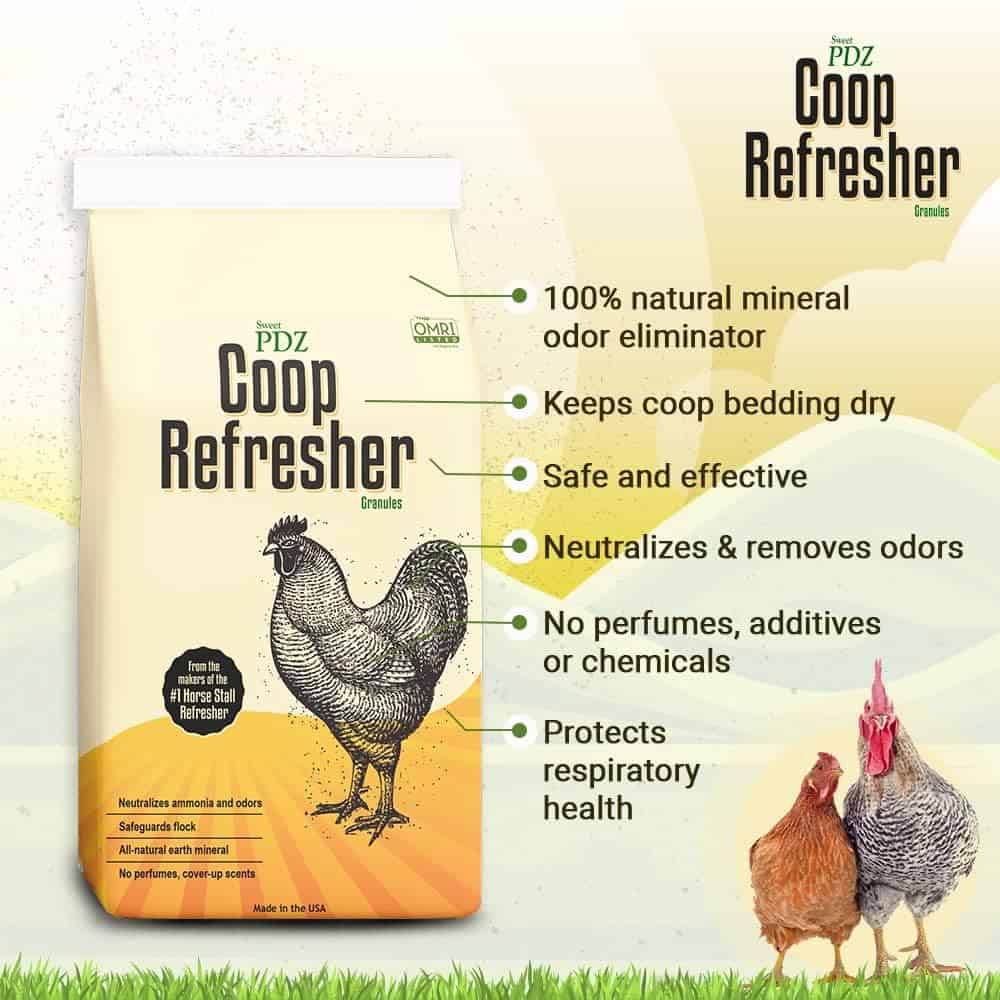 | 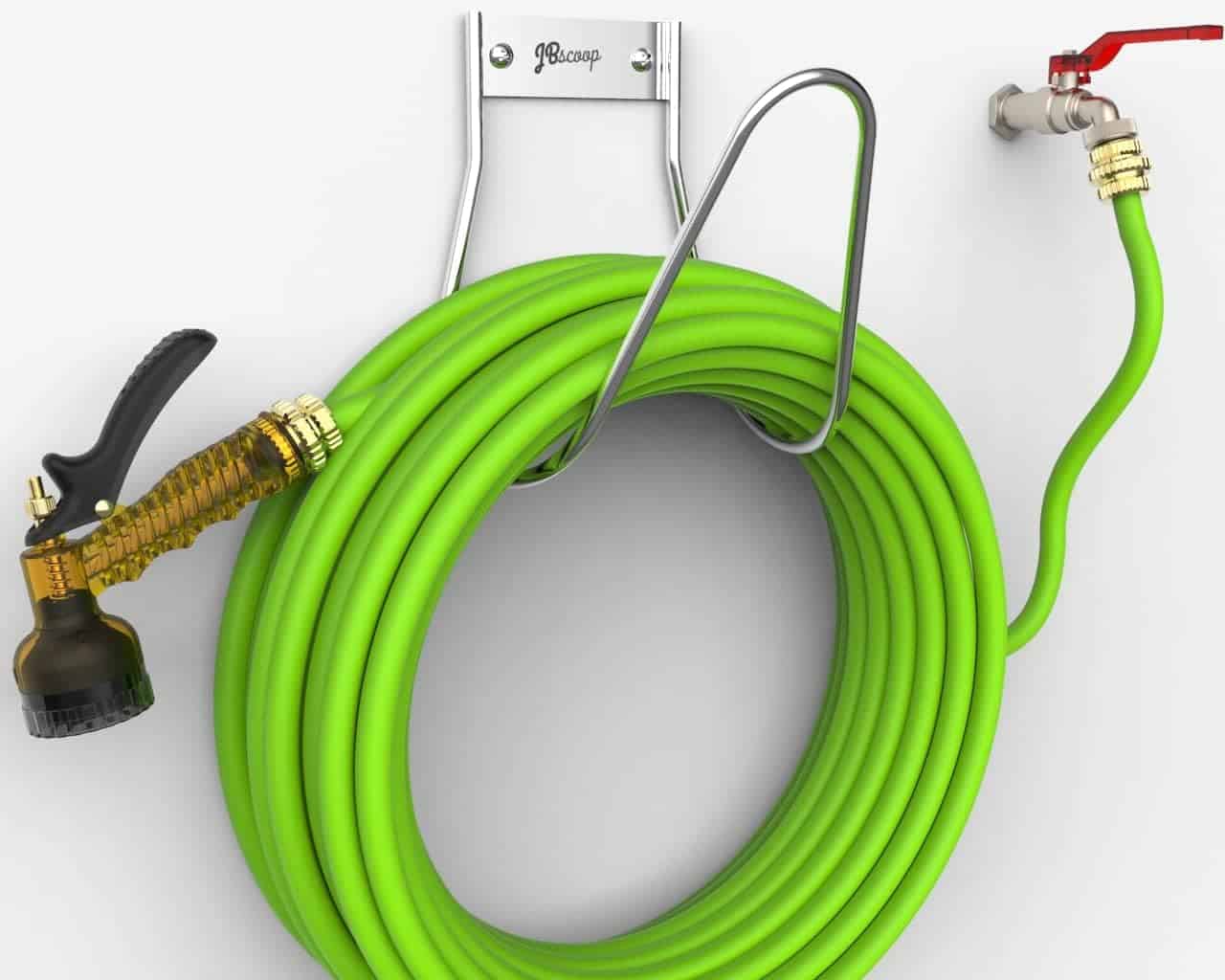 | 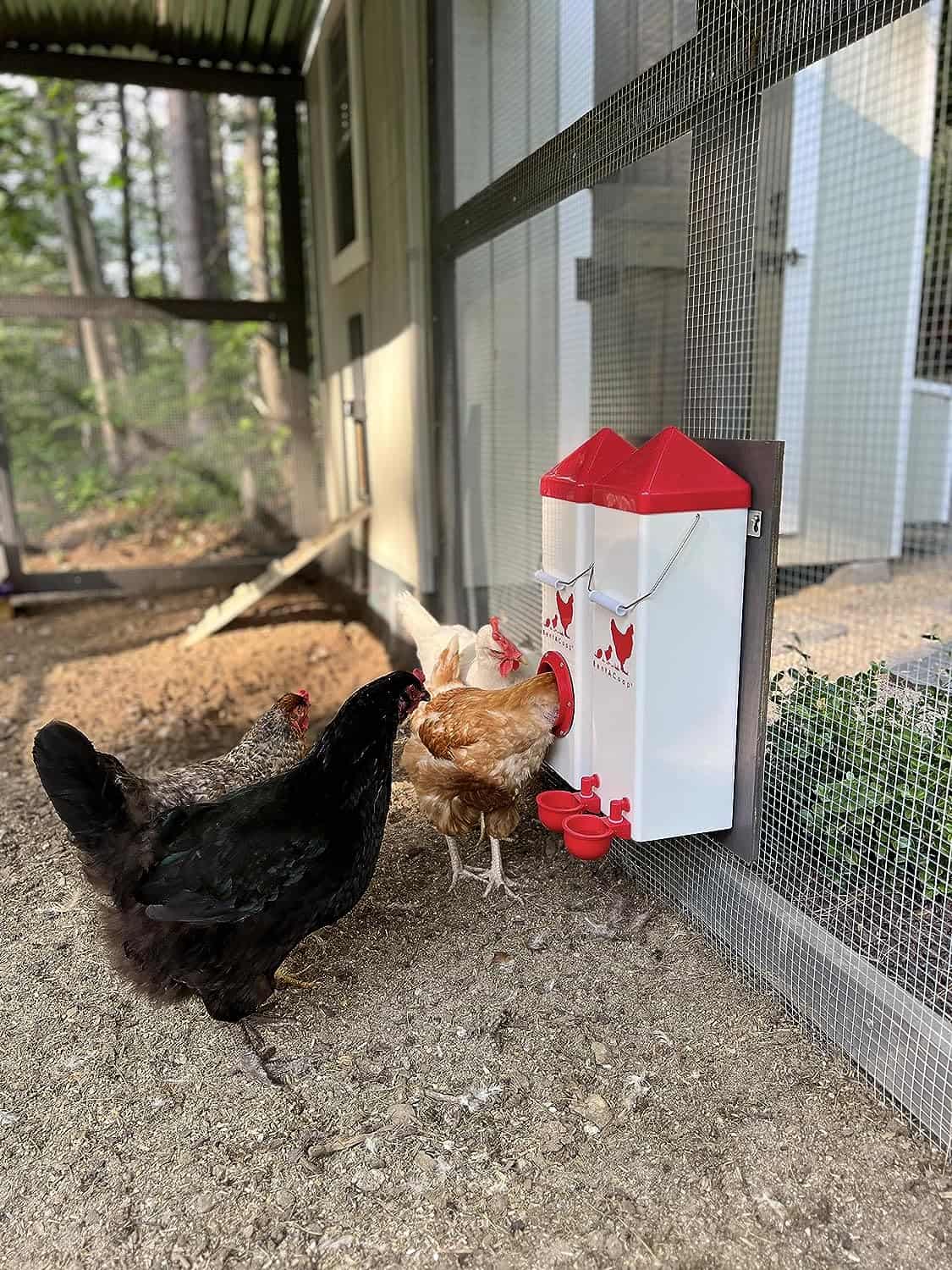 | 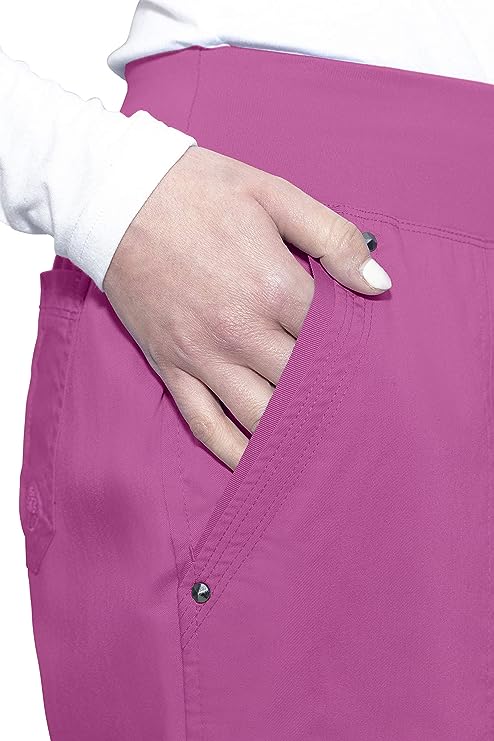 |
| Essential accessory for your coop | No more tripping over hoses! | Predator protection made easy | Comfort + style is possible |
How does a rooster fertilize eggs?
If you are wondering what a rooster does to the eggs whenever you have a rooster around your backyard hens, then the most basic answer I can give you is that the rooster is there to actually fertilize the eggs. But let’s talk more about that as we go along this topic.
Hens don’t need roosters to lay eggs
So, in case you didn’t know because you are yet to take care of chickens or if you simply do not know how the entire process of egg-laying works, what you need to know is that hens don’t even need roosters to be able to lay eggs.
Hens will always lay eggs because this is part of how their reproductive system works. Think of it as similar to how human females still have egg cells that they will continue to expel when the eggs are not fertilized by a sperm. In a way, hens function similarly, as they will continue to form eggs regardless of whether the eggs have been fertilized or not.
In short, hens don’t even need roosters to lay eggs, but such eggs are unfertilized. That means that, without a rooster to fertilize the eggs, these eggs will never form into chicks and hatch after 21 days.
Roosters mate with hens
If you have ever seen a rooster before, you might wonder how it actually mates with a hen, given that it doesn’t have a visible reproductive organ. But the point of the matter here is that roosters actually mate with hens in a manner that isn’t quite similar yet not so different from how mammals mate.
Things start when the rooster begins a ritual mating dance to try to impress a nearby hen that it wants to mate with. The dance is not only a way for it to impress the hen but to also mark its territory as it is telling the hen that it wants to mate.
When the hen understands the signal that the rooster is sending it, it will crouch down to the ground so that the rooster will be able to easily mount it and begin mating with it. The rooster will also most likely bite down on the feathers found on the hen’s head so that it won’t end up losing its balance while mating with the hen.
What happens next is that then will lift its tail feathers up to reveal the cloaca, which is the same hole that the hen uses to urinate, defecate, and lay its eggs. It is also the same hole where the rooster transfers its sperm so that it will be able to fertilize the hen’s eggs.
As the hen lifts its tail feathers up, a small bump in the rooster’s cloaca will begin delivering the sperm to the female’s cloaca the moment the two holes touch. As soon as the sperm has been delivered, the mating process is finished and, as long as the male’s sperm is mature and healthy enough, it will be able to fertilize the female’s eggs.
Are eggs different when you have a rooster?
If you have a rooster around your hens, the one thing you have to know is that fertilized and unfertilized eggs will not be different from one another in terms of their overall appearance and taste. That is, of course, if the fertilized eggs were collected promptly and were not given a chance to get incubated properly to form the embryo.
As such, if you do have a rooster in your backyard, and it is continuously mating with the hens, the eggs that you are going to collect won’t be different from the usual eggs that were collected when a rooster is not around.
The only difference here is that some eggs might be fertilized, but even a fertilized egg isn’t so different from an unfertilized one so long as it is yet to form an embryo.
That said, there is no difference between a fertilized egg from an unfertilized one, both in taste and in appearance. You will only see the difference if you left the egg for brooding, and you waited long enough to collect it. That is when the fertilized egg will begin the early phases of conception and will actually be far different from an unfertilized one when you crack it open.
Is it safe to eat eggs from your own chickens?
All that said, the one thing I can say for sure here is that, regardless of whether the eggs are fertilized or not, it is completely safe for you to eat eggs from your own backyard chickens. In fact, this is a common practice among many different households with backyards that are big enough for them to keep chickens. After all, when you have chickens around, you have a perennial source of eggs that will help you save enough money.
However, for eggs to be completely safe for you to consume, there are some things that you need to consider first:
- Make sure that you clean the eggs after collecting them. Remember that the eggs are laid from the same hole where the hens urinate and defecate, and that the eggs are laid on the dirty ground.
- Always store the chicken eggs in a cool and dry spot, and make sure that you keep them away from any spot that is warm or humid. Fertilized eggs need warmth and humidity to begin to incubate. Even unfertilized eggs will go bad quickly when you keep them in warm spots.
- A few days to about to a week of keeping the eggs on the counter, place them in the refrigerator to increase their overall shelf life.
As long as you have done any of those, then your eggs will be completely safe for you to consume and will not be any different from the commercial eggs that you buy from supermarkets or grocery stores. They may even be healthier because they are free-range.
Essential Tools for Chicken Owners
Check my curated list of essential products!
I’ve gathered all the best products that have helped me with raising my chickens, so you don’t waste time on bad ones.
Find my complete list of recommendations here.
For more tips, guides, and recommendations, you should definitely subscribe to my newsletter.
Use the form below, it’s free.

